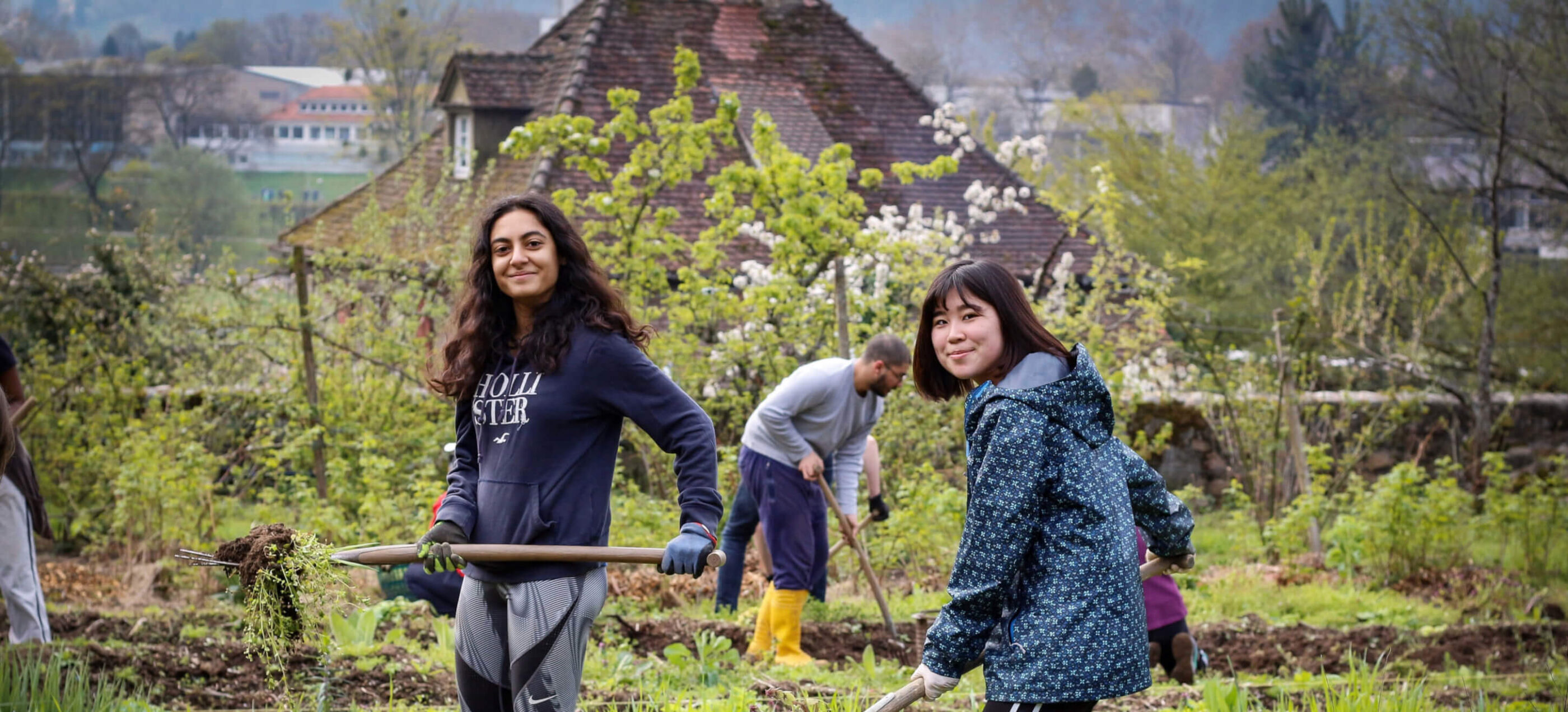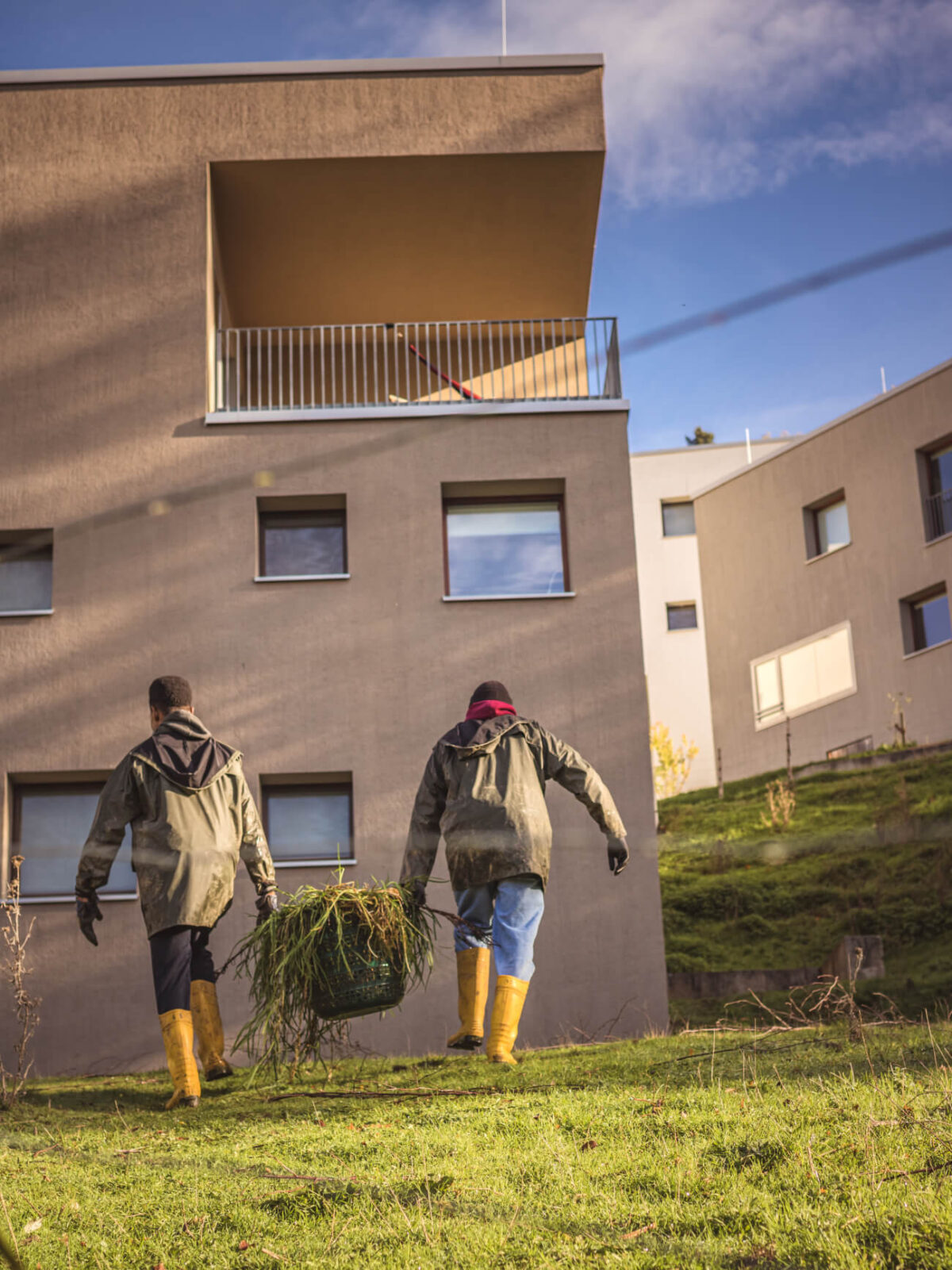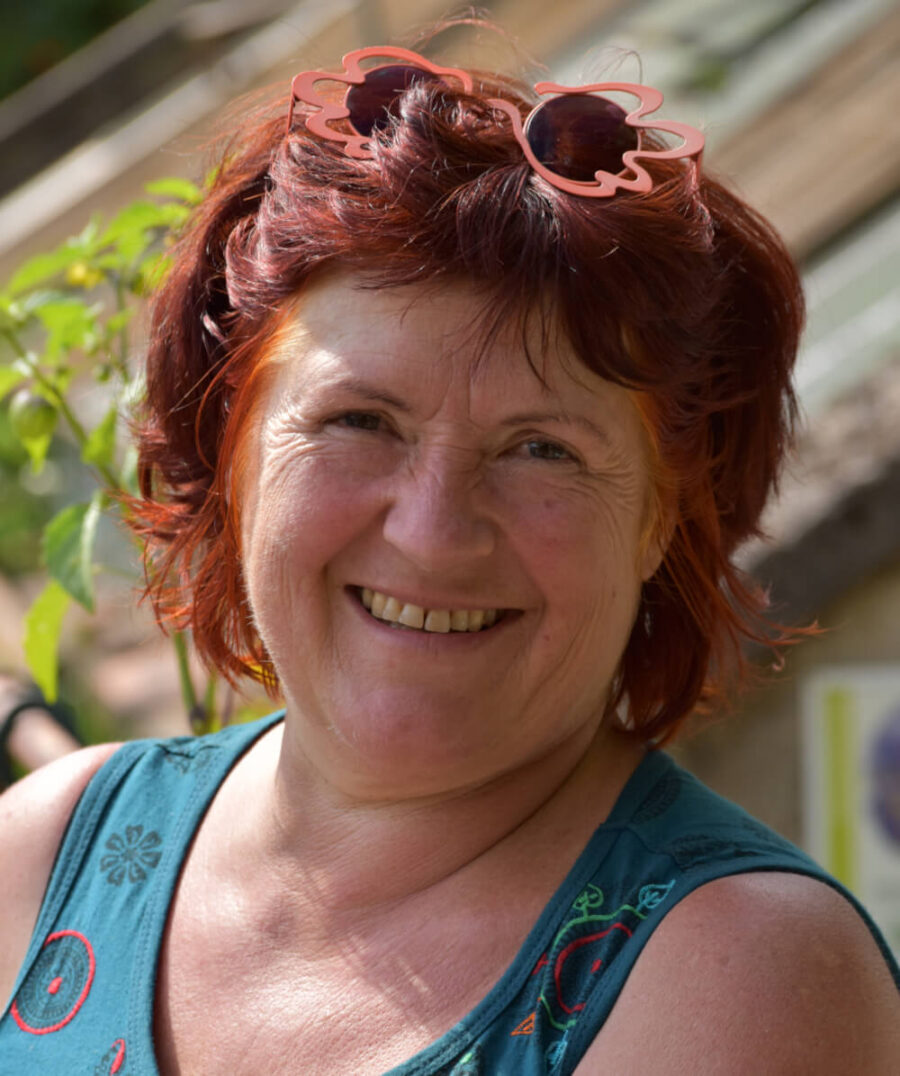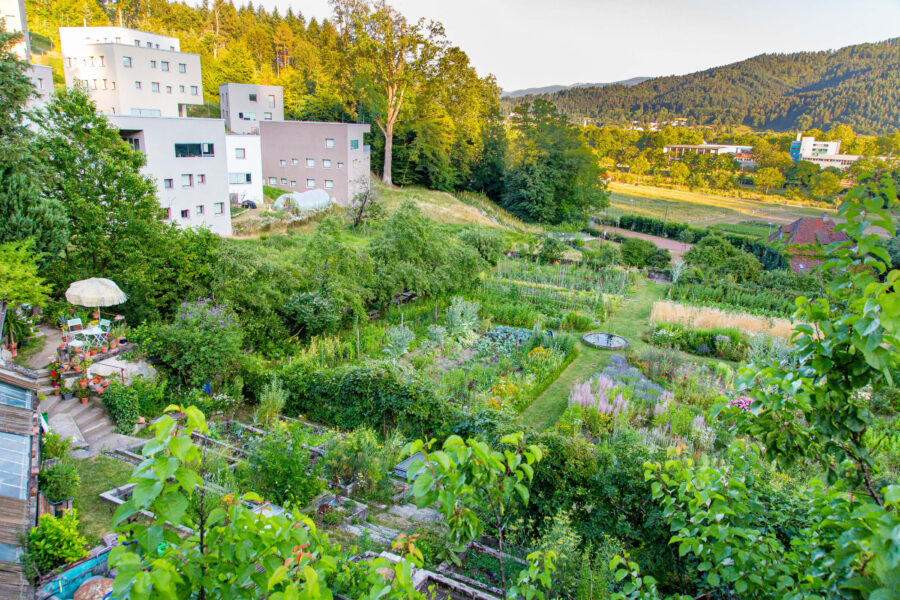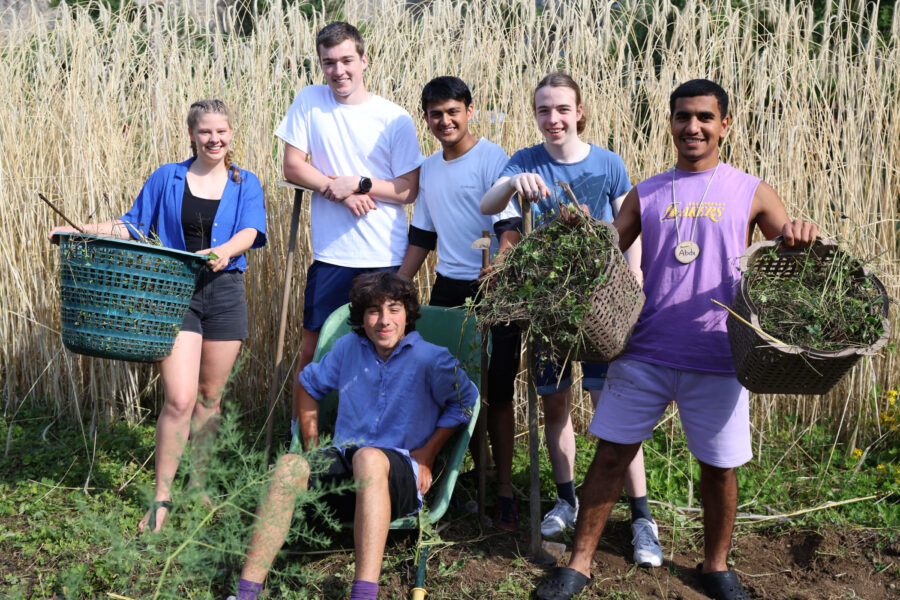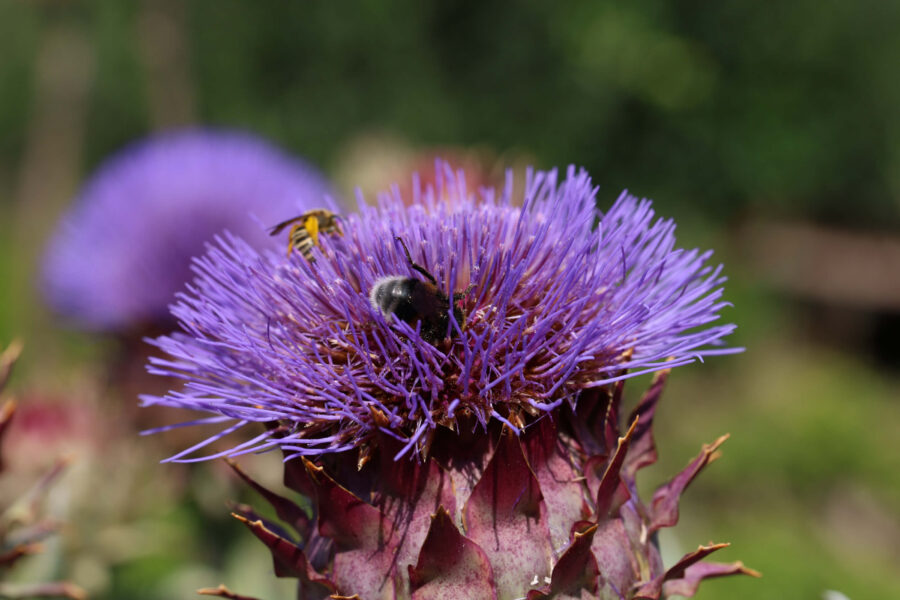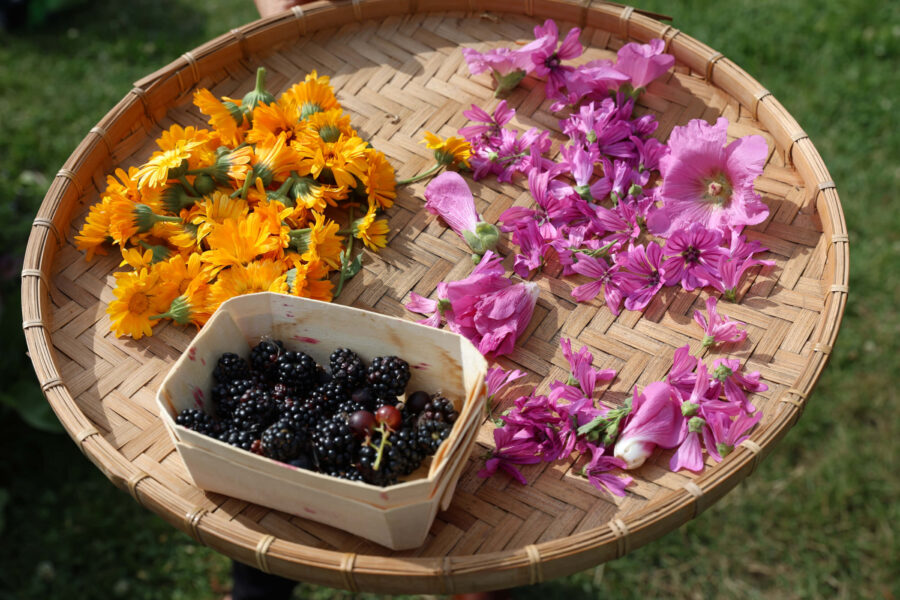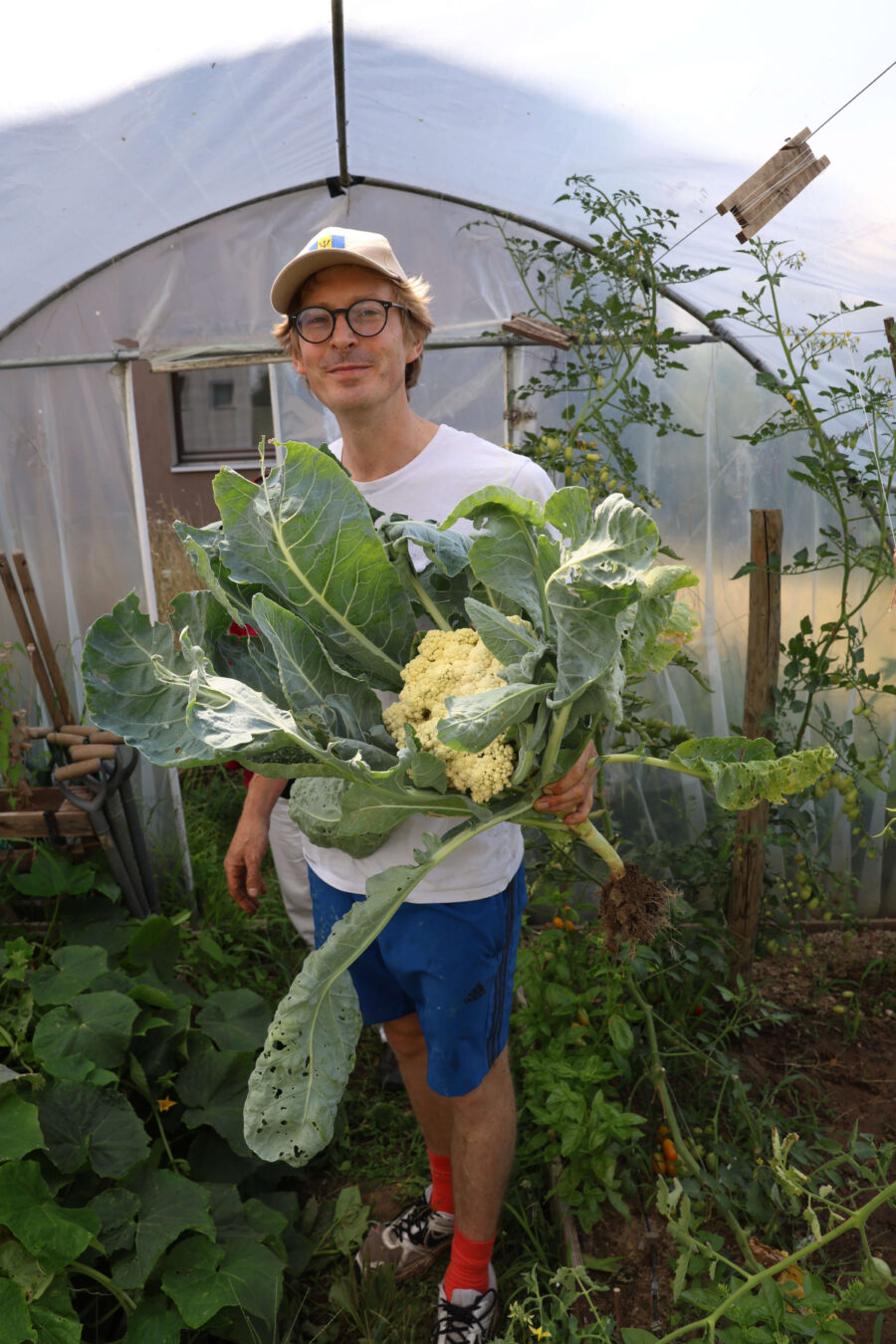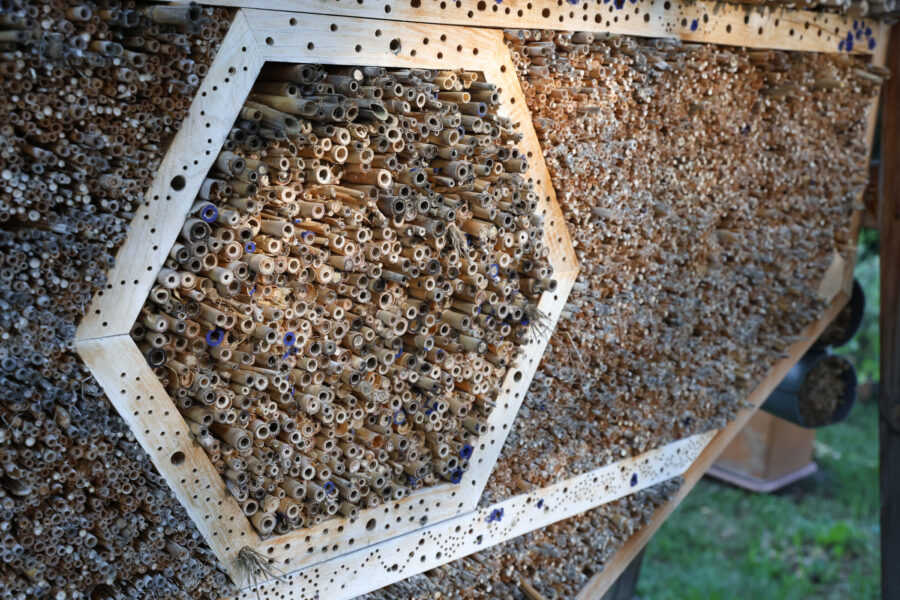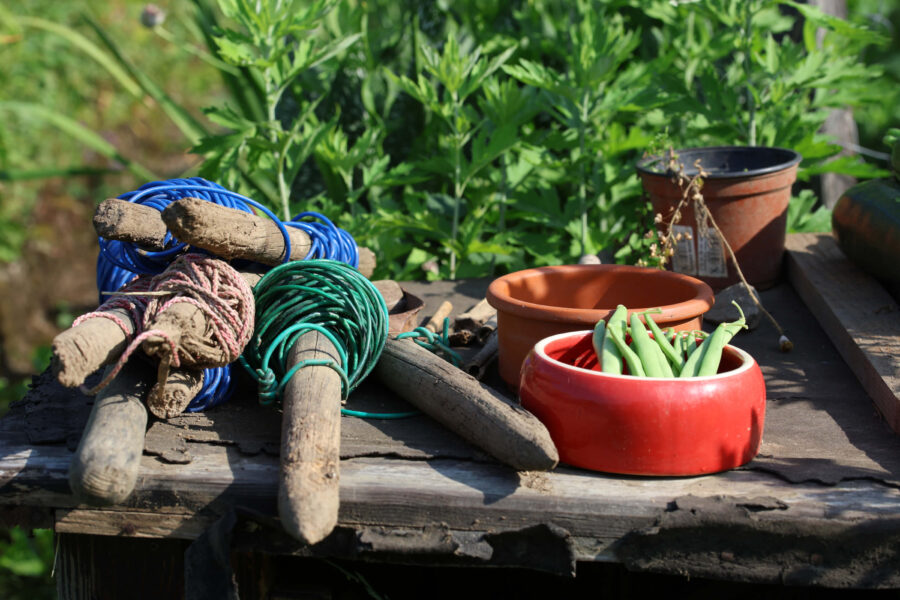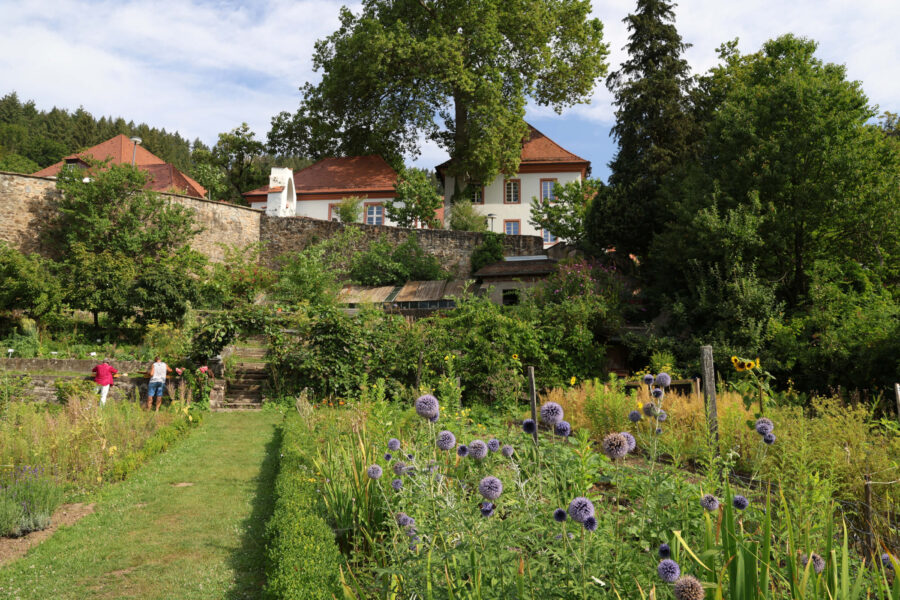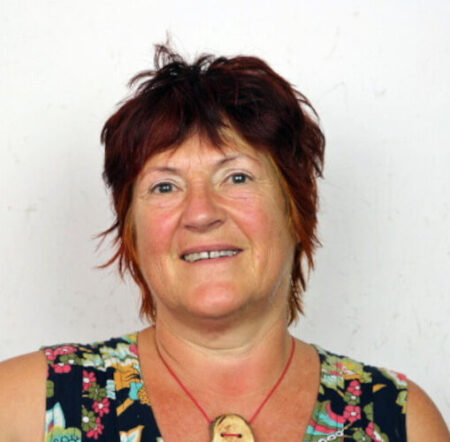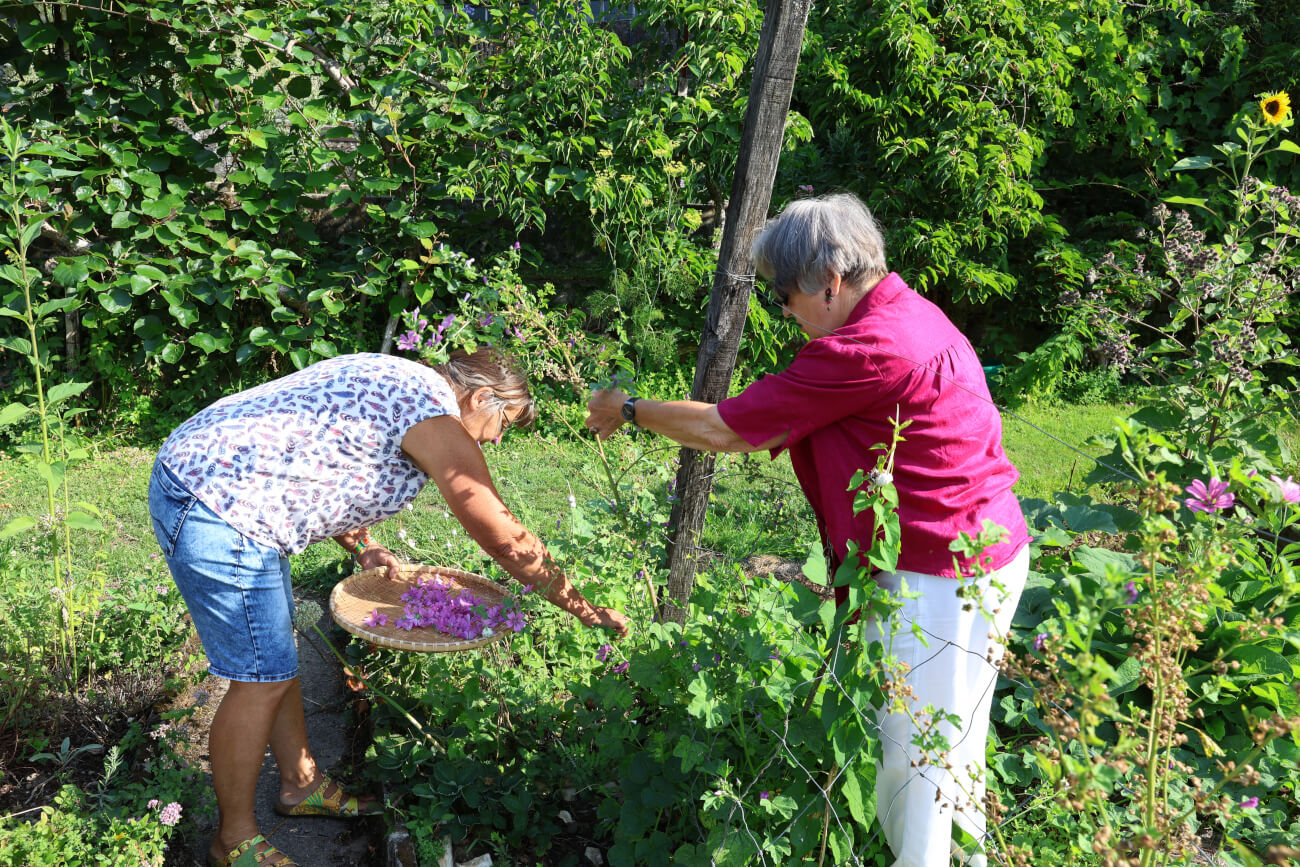A learning environment rooted in history
The former kitchen garden of the Carthusians, known in Alemannic as the Kuchelgarten, is located below the school building. A historic stone wall encloses the 2,000 square meter garden area with greenhouse, cold frames and the classic division of the parterre into four fields with a cross and central water basin. Unchanged in location and size for around 600 years, this area has served its changing owners over the centuries as a provider garden – Carthusian monks, aristocrats, residents of the retirement home, private families and, finally, UWC.
Biodiversity and organic farming
The garden has been cultivated organically since 1992. The large variety of crops also includes seed production and seedling cultivation. For example, the cultivation of the medicinal plant Angelica archangelica, which was already exported internationally in the days of the Carthusian monks, has been revived.

